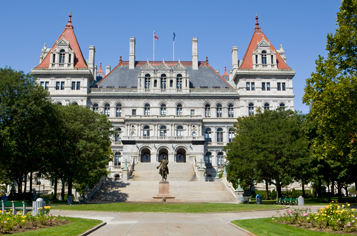New York State’s financial regulator is moving forward with the rulemaking process for the state’s Buy Now, Pay Later (BNPL) Act. However, several BNPL providers are requesting an extension to the deadline for responding to the Department of Financial Services’ (NYDFS) comprehensive request for information. The original deadline is set for August 31, 2023, following a voluntary request issued on July 31.
In May 2023, New York established a licensing and oversight framework for the BNPL industry as part of its 2026 budget. This legislation marks the first instance of a state law specifically targeting BNPL loans for licensing obligations, according to a bulletin from Mayer Brown. The NYBNPL Act defines a BNPL loan as an extension of closed-end credit provided to a New York resident in connection with purchasing goods or services, irrespective of whether interest or finance charges apply. Notably, loans related to motor vehicle purchases are excluded from this regulation.
As part of the rulemaking process, the NYDFS aims to gather detailed information about the business models of BNPL providers, their fee structures, and underwriting processes. The NYDFS stated that understanding these factors is crucial for assessing how limits on fees and interest may impact BNPL product underwriting and the broader business landscape.
In response to the NYDFS’s request, the American Fintech Council (AFC) has formally asked for a 30-day extension. Phil Goldfeder, CEO of AFC, emphasized the need for adequate time for companies to conduct the necessary due diligence and submit comprehensive information. “We want to ensure that there is adequate time for companies that choose to participate to do the appropriate due diligence and provide DFS the information they need,” Goldfeder told American Banker.
Legal expert Eamonn Moran from Holland & Knight underscored the challenges involved in the NYDFS’s request, stating, “The data requested by NYDFS requires significant time to collect, compile, and transmit.” He noted that the NYDFS specifically asks respondents to be as detailed as possible in their responses and to include relevant data and materials.
The Financial Technology Association, another industry group representing BNPL providers, has also expressed support for the extension. CEO Penny Lee stated in an email, “We appreciate NYDFS’s focus on data-driven policy and are committed to providing accurate responses to inform their rulemaking. However, given the breadth and depth of the Department’s questions, we would support a 30-day extension of the deadline.” Lee further noted that while their members advocate for appropriate rules that protect consumers, some provisions in the final bill may not be suitable for BNPL products.
The NYDFS has not responded to requests for comment regarding the extension. As the deadline approaches, BNPL providers will need to decide whether to participate in the information request. Moran pointed out that firms may weigh the risks of not responding, especially those whose activities might fall under the BNPL Act. He added that companies could face challenges in providing information they consider sensitive or proprietary.
The NYDFS is looking to gather accurate and comprehensive data to inform its regulatory framework. However, the tight timeline for submitting this data raises concerns about the potential for inaccuracies or incomplete information. “Receiving the most accurate and comprehensive data possible would be helpful for all parties involved,” Moran concluded, highlighting the critical nature of this data for the NYDFS in shaping its forthcoming regulatory activities concerning BNPL products.
